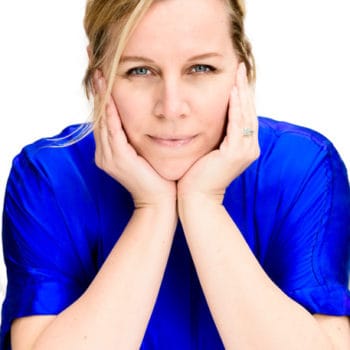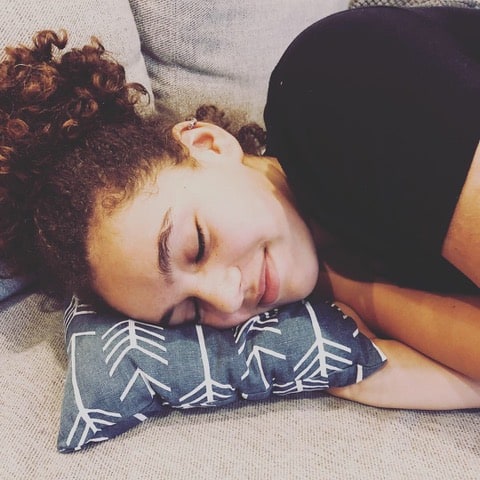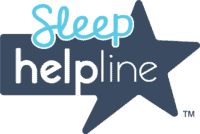How Lack of Sleep Affected My Daughter’s Mental Health
Guest Post by Anne Taylor RN, BSN
Walking out of the pediatric sleep center with my 12-year-old, she was just diagnosed with narcolepsy without cataplexy, sleep apnea and periodic leg movement disorder, my world stood still and I needed fresh air.
The years it took with multiple sleep tests, tonsil and adenoids surgery and more sleep studies had us drained physically and mentally. We were exhausted from seeing doctors, all of us.
Her life had been robbed by her sleep disorders, rapid weight gain, special accommodations in school, no energy to make friends, all in small steps over the years, all culminating with finally getting a diagnosis, a name to apply on all of this.
We all have mental health.
The head is connected to the body and yet, in our society, there tends to be so much stigma around mental illness, it can often be easier to speak openly about a physical illness and receive support.
According to NAMI (National Alliance on Mental Illness),one in every five people will be affected by mental illness in their lifetime.
Stigma lives well in the dark, grows and lives off all the shame society feeds it. But out in the sunlight, it shrinks, and people become people.
We are whole human beings and we ALL have physical health equally with mental health, they are connected and can’t be separated.
Leaving the pediatric sleep clinic that day I had declined a prescription for a stimulant knowing it could increase anxiety, I wanted her to meet with our psychiatrist first. I should reveal I am not only an RN but my husband and I had just spent the past years supporting our oldest daughter through depression. Starting out with a severe lack of words to talk about mental illness, we are now advocates and can fill a whole dictionary of words.
We have chosen to fight in the open and empower our girls with tools.
The lines are blurry when trying to distinguish what’s regular teenager behavior from what’s a mental health struggle, especially among teens with a sleep disorder.
Is the frustration lack of sleep? Lack of motivation, anxiety, isolation, anger and constantly moody? Mental health and physical health are inter-connected with such a delicate pattern that when one if lagging behind, the other one exhibits signs and symptoms. The body will always aim for homeostasis.
Taking care of my daughter’s mental health while learning to live with narcolepsy has absolutely had its challenges, but looking at the whole picture is crucial to live a healthy life.
Good restorative healthy sleep is the key element of our mental and physical wellbeing.
My daughter quickly learned that sleeping without her c-pap made it for a rough day to stay awake during school. Our psychiatrist prescribed a stimulant and a mood stabilized to reduce the anxiety, just like the sloth moves slow, so did stabilization of my daughter’s health.
Healing takes time.
Healing requires connection, nobody can heal in a vacuum. Living with a sleep disorder can feel like living inside a cloud in a sleep-deprived body. The combined medical care my daughter received brought her out of the cloud and connected her physical and mental health again.
We have learned that the transition from napping can be hard, having a glass of water or orange juice next to the bed gently wakes up her body’s senses. Having time for a wholesome breakfast in the morning is a good start of the day, especially on days when her sleep has not been optimal.
Self-advocacy is important, and personal empowerment is a powerful tool of mastering a new diagnosis.
Now, my daughter plays club volleyball; the physical activity is great but the late practices can easily disrupt her sleep schedule. It’s a balance, like so many things in life.

Project Sleep’s Editor’s Note: May is Mental Health Month, so we are grateful to Anne for sharing this beautiful guest post on the intersection of sleep and mental health! To learn more and get involved in Mental Health Month, please visit NAMI’s resource page here.







2 Comments. Leave new
So much love and admiration for your family. You continue to inspire me, as do your girls.
Has a license CDL driver, we are trained and taught that sleep debt is a real thing. Sleep is like money in the bank. You can’t just take it out and not put it back. My husband also teaches biology and chemistry an inner-city. Most of his kids who are disruptive wind up putting their heads down and going to sleep. They are inundated with issues that children have no business having to deal with. But when they put their heads down and go to sleep, he allows them to sleep because he realizes that’s really what they need. Great article!